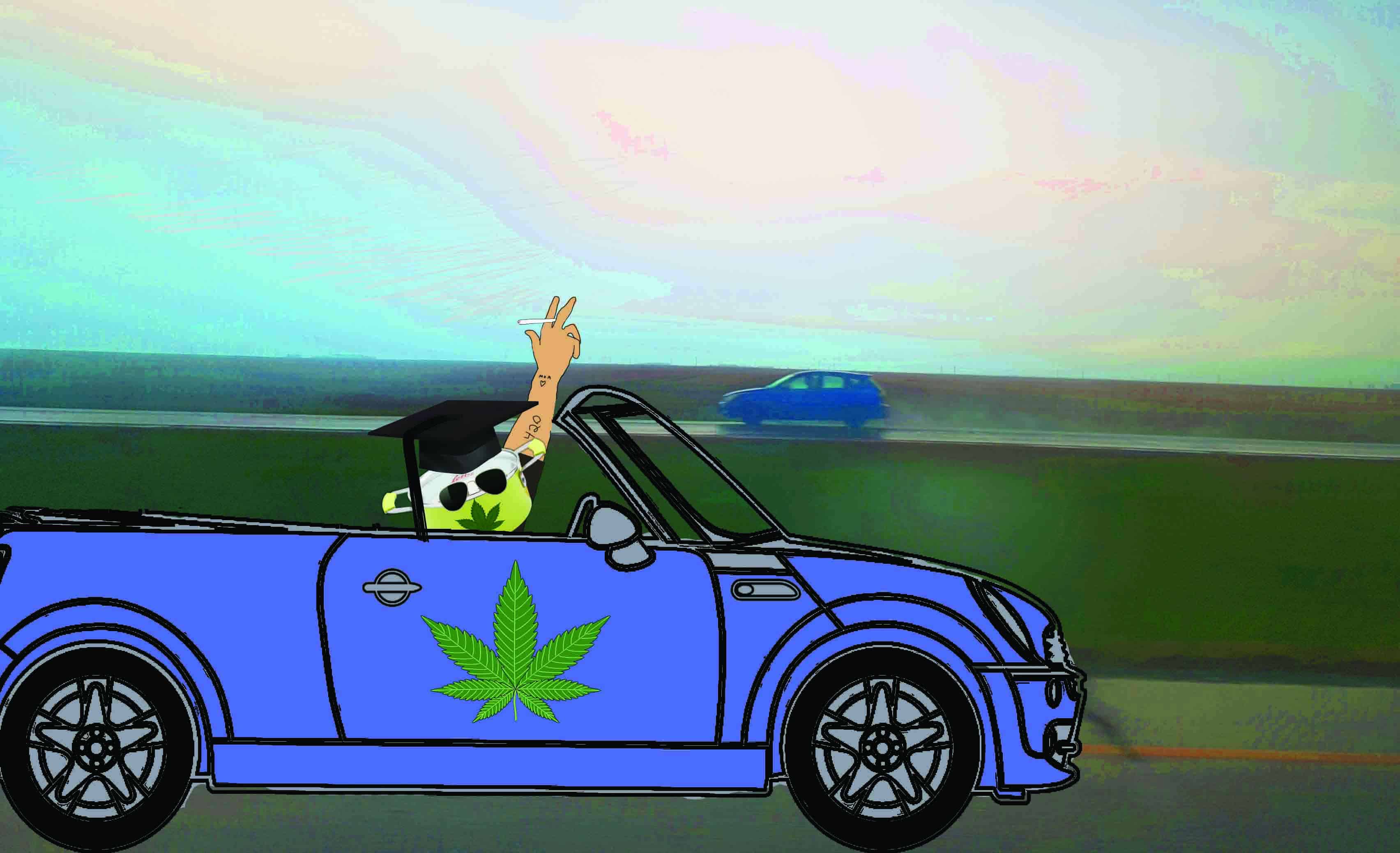DUI laws changed

author: jacob nelson | staff writer

Bad boys, bad boys / jeremy davis
Is this an example of overreach?
The legalization of marijuana has created a strong buzz throughout the nation since its inception in October of last year. Unsurprisingly, there has been controversy clouding over the legalization before and after it came to pass.
Who will regulate it? Will it be clean? How will it be taxed? Good questions, yes. However, one question stands out as it acted as almost a supplement to the legalization of weed, how much more power will the authorities need? Enter Bill C-46.
Under section 253 and subsection 254 of the Criminal Code of Canada, it now reads that if a peace officer has reasonable suspicion that a person has drugs or alcohol in their system and has operated a motor vehicle within the last three hours, then they may be demanded to take a Breathalyzer test.
If you have a drink or maybe a quick hit of weed after you get home from work, you can also be reprimanded for that, although you were not intoxicated while driving. While it is unlikely that any member of authority will come to your house to breathalyze you within three hours of you driving, it is still allowed.
Not only can they follow you home, but they can also demand a breath sample anywhere at any time. This power has potential to be abused and is subject of concern for many. The Criminal Lawyers’ Association has spoken out about the dangers of this law.
“It will be inevitably disproportionally [sic] employed against minority or marginalized communities.” Because of the seriousness of impaired driving, foreigners could be deported upon first offence.
It might also be noted that anyone who refuses to take the test could be subject to a $2,000 fine and time behind jail if it happens again.
One of the biggest aspects of this new law is that it creates limits for the THC allowed in your system. THC is the chemical component of marijuana that has psychoactive effects, and it is hard to evaluate. As everyone’s bodies metabolize at different rates, THC can stay in your body’s fat cells for up to a few weeks without causing any effects to you. Due to differences in people, from size and body fat percentage to frequency of usage, it is hard for any doctor, let alone police officer, to dictate how sober you are.
Needless to say, the law has become even more convoluted with the passing of C-46. If a driver refuses a breathalyzer on the basis of requiring legal counsel, they could still be charged and face criminal repercussions.
Think about that. You will actually possess a criminal record if you were to refuse or fail a Breathalyzer.
I couldn’t fathom the thought of a loved one no longer being able to get a job or leave the country due to a joint they smoked three days prior to driving their car. It is easy to look at this form the outside and say its not that big of a deal, but what if it happened to you?
To think of what your life could be limited to with a criminal record can put this law into perspective.
So, what is the limit for THC in the blood system? Its measured in nanograms per milliliter, compared to alcohol which is measured in milligrams per one hundred milliliters.
The charges will start at a level of two nanograms; you could face up to a $1000 fine. Above five nanograms would see you face a minimum of $1000 fine, second offence would be 30 days imprisonment, and third would result in 120 days imprisonment. Keep in mind these levels are all in affect within a few hours after you have stopped driving as well.
However not all fight this law. Jody Wilson-Raybould, Minister of Justice and Attorney General of Canada is understandably in favor of bill C-45. Jody supports the bill in favor of bringing less damage to innocent families.
“As I have indicated on previous occasions, the primary objective of this legislation is to save lives, lives that continue to be tragically cut short by irresponsible and reckless decisions to drive after consuming alcohol or drugs,” stated Wilson-Raybould in parliament.
It’s clear that there are two very distinct sides in this argument. However, both have the interests of the innocent in mind. The innocent could be unnecessarily charged, or the innocent could be unnecessarily harmed. The next few years under this Bill will show exactly which of those arguments is, in fact, true.








